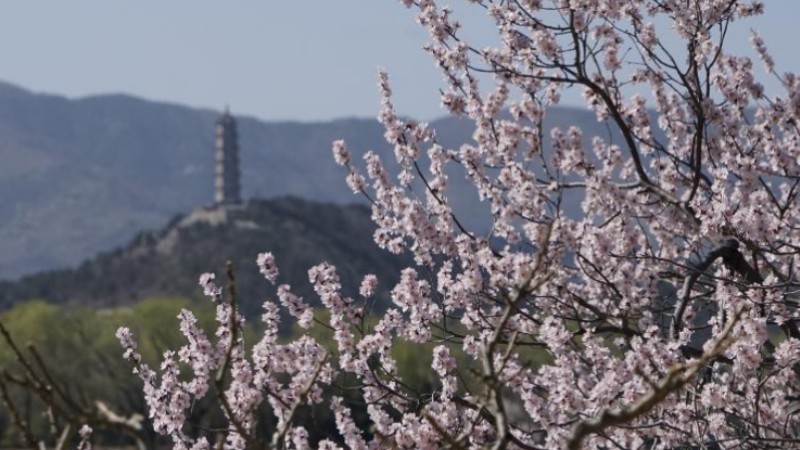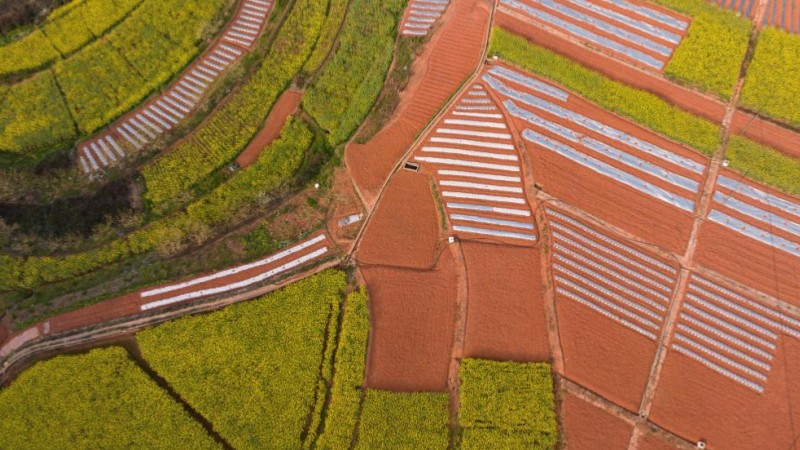China plants tape grass to feed wintering birds at its largest freshwater lake

Black-tailed godwits fly over a white crane conservation area by the Poyang Lake in Nanchang, east China's Jiangxi Province, March 10, 2023. (Xinhua/Zhou Mi)
NANCHANG, March 13 (Xinhua) -- Rows upon rows of tape grass have been planted at the Poyang Lake, China's largest freshwater lake, in Duchang County of east China's Jiangxi Province. The grass is an important food for migratory birds that winter at the lake.
According to the county's migratory bird nature reserve administration, about 900,000 tape grass seedlings worth a total of more than 200,000 yuan (about 28,830 U.S. dollars) have been planted across approximately 6.67 hectares, with a decision on the expansion of the planting area to be made based on the survival rate of this year's crop.
Due to the impact of last year's drought, the degradation of submerged plants such as tape grass in some areas of the Poyang Lake wetland was severe, according to administration official Guo Hua. The drought-affected lake entered its dry season last year in early August, some three months earlier than the average date since 1951.
"So, we explored a method of growing manually planted tape grass to store food for migratory birds overwintering at the Poyang Lake in the second half of the year," Guo said, noting that the plant will experience a breeding boom when the wet season arrives in June.
The Poyang Lake has an intact ecosystem and is an important wintering site for waterfowl in Asia. The peak migration period for birds heading to the lake begins in mid-December and continues into early January.
Hundreds of thousands of migratory birds arrive at the lake for the winter each year. A total of 98 percent of the world's white cranes, more than 80 percent of the world's oriental storks and more than 70 percent of the world's white-naped cranes winter at Poyang.
Photos
Related Stories
- Two bird species spotted for first time in Xiamen, SE China’s Fujian
- Crested treeswift breeding season begins in SW China's Yunnan
- Rare wild black stork spotted in Yongchuan district, SW China’s Chongqing for first time
- Chubby bird gets a nickname: glutinous rice ball
- China initiates nationwide effort to protect bird migration passages
Copyright © 2023 People's Daily Online. All Rights Reserved.









